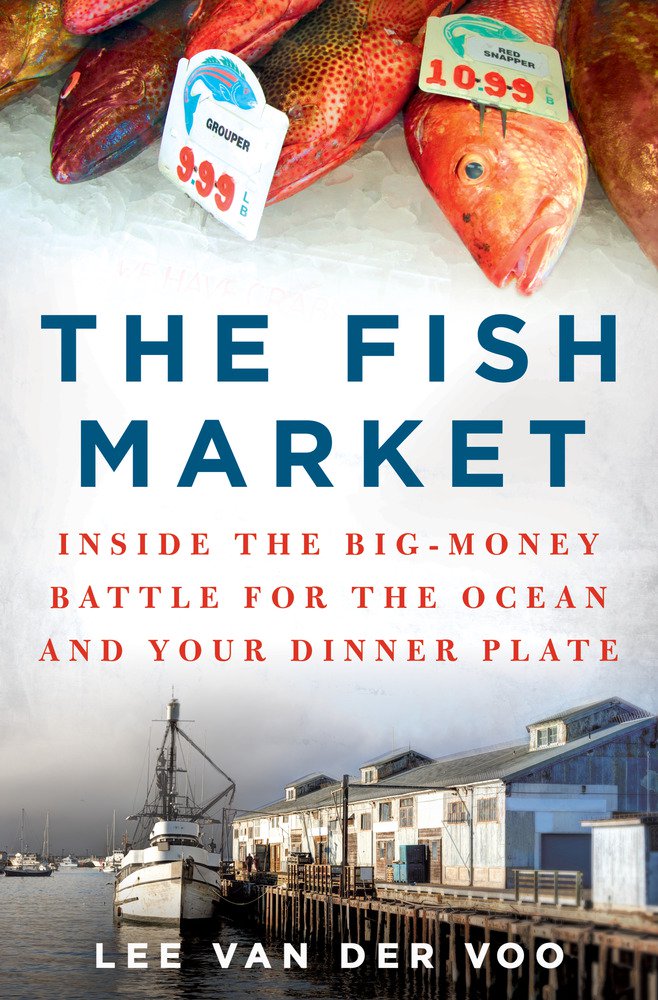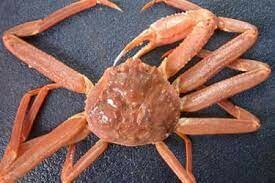Lee van der Voo’s new book “The Fish Market” takes an in-depth and honest look at the implementation of individual fishing quotas in the United States within the context of global adoption. Its main dish is the Gulf Wild brand and Gulf of Mexico snapper-grouper quota system. The gulf reef fish fishery is the new poster child for the Environmental Defense Fund and other advocates of IFQs because the stocks responded to this management plan — and fast.
I was nervous when I saw the first chapter title, “Bering Sea: Monsanto on the Ocean.” But van der Voo is a journalist who does not shy away from the real story of catch shares — accolades as well as criticisms — including her description of the name as “a polite-sounding term that implied things got shared when what they really got was privatized.”
She details the history of IFQs in U.S. fisheries, how the programs are bolstered by Wall Street and congressional politics, as well as how consumers can be committed to sustainable seafood without relying on the 1 percent to throw their support behind a single management scheme and NGOs selling the public on traceability.
Van der Voo writes that environmental groups that support catch shares hope “money motivates people. And if you give fishermen a piece of the ocean, they will take care of the ocean or they will lose their money.”
The error in this logic is that it presupposes that historically fishermen have not been stewards of their workplace. They have not enjoyed a reputation for good stewardship in the mainstream press in recent years, but there’s a lot of history as to how the reputation became so tarnished.
After we passed the Magnuson Act in 1976, some federal lawmakers believed pushing foreign fleets offshore ensured that our fisheries were indefatigable. Loran, radar and communications electronics paved the path for laymen to enter fisheries without leaning on the knowledge gleaned from the generations that came before. The federal government placed a red carpet over that path by creating incentives for entrants to build boats, go fishing and bring more healthy seafood to the marketplace. These changes contributed to what we now define as collapse in some fisheries and label it “overfishing” no matter what the cause.
The other problem with the premise that fishermen will succeed if they are allowed to own their corner of the ocean is the assumption that any corner of the ocean is isolated from influences other than commercial fishing, including competition for the resource by recreational fishing and destruction of the resource by development, pollution and climatic shifts. Owning a quota does nothing to protect your stock from those influences.
What we’ve seen in the Gulf of Mexico IFQ system is that owning quota also cannot protect you from a political campaign launched by the Coastal Conservation Association’s powerful recreational fishing lobby. The fishermen who lobbied for IFQs are at high risk of losing everything if the gulf states have their way. So even for the poster child, it’s questionable whether it was all worth it.
The problem with IFQs is not whether or not they work. The problem is that no management style is a panacea. No two fisheries are alike, and their response to new management systems is unpredictable. West Coast and New England multispecies groundfish fisheries have shown that it is nearly impossible to effectively manage a diverse fishery with IFQs because we have so far been unable to define and achieve a mythical balance among a wide range of stocks that are affected by a whole host of factors outside of fishing effort. In a multispecies complex, it is highly likely that some species will always be considered overfished and others underfished if we stick to our current standards of management.
If we believe IFQs are the answer for every fishery, then fishermen in multispecies complexes will always be left to choke on choke species.
I am grateful that more mainstream writers like van der Voo are delving into the politics of fishery management. It scratches the gold-plated surface, which is a start.
The Fish Market
Inside the Big-Money Battle for the Ocean and Your Dinner Plate By Lee van der Voo
St. Martin’s Press, 2016
Hardcover, 270 pp.
$26.99







